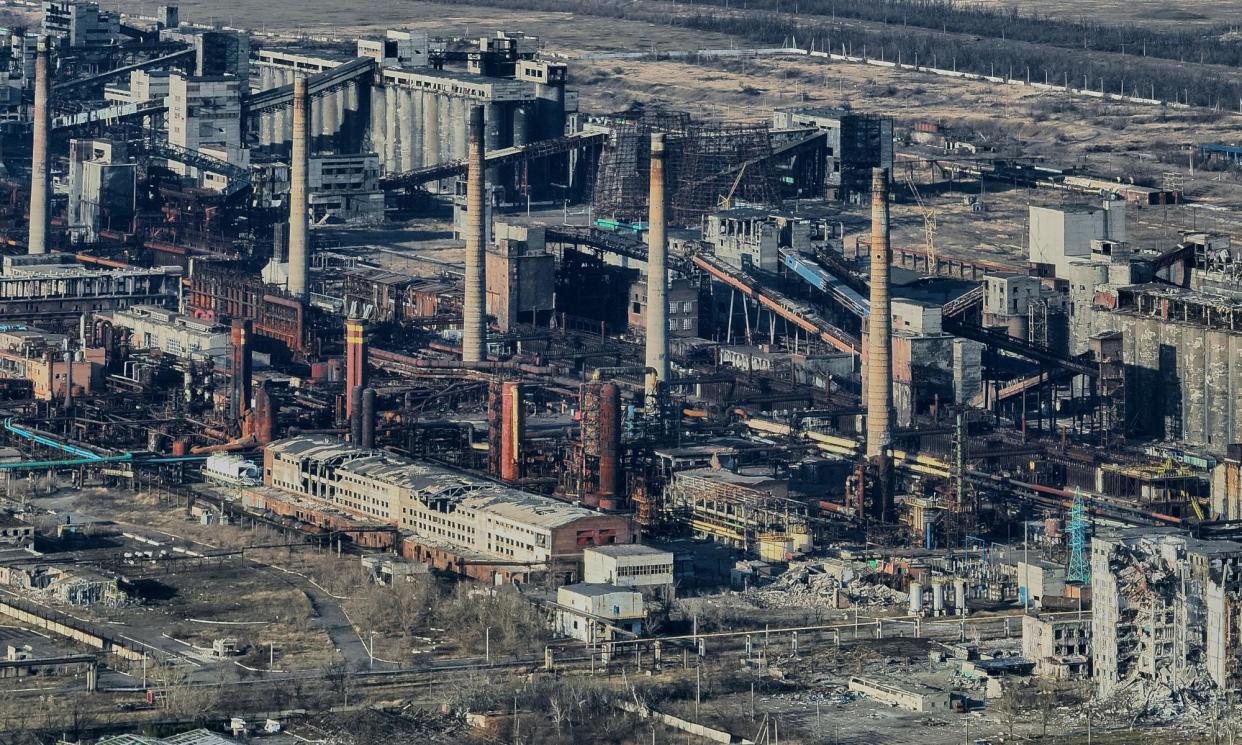Ukraine’s war effort already affected by block on $60bn US aid, says Nato chief

The US failure to vote through a fresh military aid package for Ukraine is already having an impact on the battlefield, Nato’s secretary general has warned at the end of a defence ministers’ meeting.
Jens Stoltenberg said he still believed Congress would eventually approve the stalled $60bn (£50bn) package, but his cautious remarks came as Nato officials warned Russia was making “significant gains” near the frontline town of Avdiivka.
“The fact that the US has not been able to make a decision so far has already had consequences. It is impacting the flow of support,” the Nato chief told reporters in Brussels on Thursday.
Related: ‘A lot higher than we expected’: Russian arms production worries Europe’s war planners
“To some extent, this can be compensated by increased support from other allies,” Stoltenberg said, adding that while Canada and European nations were giving more to Nato, the reality was that the US was “by far the biggest ally” and “it’s vital that they continue to provide support” to Kyiv.
Earlier this week the Senate passed a foreign aid package, including $60bn for Ukraine, $14bn for Israel and money for other allies, but the Trump-supporting House speaker, Mike Johnson, is refusing to allow it to be voted on in the lower chamber without added measures to tackle migration across the US-Mexico border.
In Washington, national security council spokesperson John Kirby offered a stark warning about the embattled Ukraine-held town of Avdiivka, which has been on the frontline since 2014.
“Avdiivka is at risk of falling into Russian control,” Kirby told reporters. “In very large part, this is happening because Ukrainian forces on the ground are running out of artillery ammunition.”
One Nato official at the summit warned that some of Ukraine’s land units were rationing their use of artillery shells, and warned that Russia had made “significant gains” around Avdiivka.
Medium- and long-range defence systems, used to protect big cities and critical infrastructure from attack, are being expended at a rate the Ukrainians “are quite concerned about – and the Russians understand that”, said the official who spoke to reporters on condition of anonymity.
Related: ‘We will stand until the end’: Ukrainian defenders of Avdiivka hold on – for now
Ukrainian officials said on Thursday they were making some tactical withdrawals in Avdiivka, and an elite fighting unit, the Third Assault Brigade, said it had been thrown into battle to defend the front.
A Telegram post from the brigade described the battlefield as “hell”. At the time the forces were deployed, the frontline was said to be “extremely critical” with seven Russian brigades ranged against them. Two of those brigades, however, had already suffered serious losses, the Third Assault Brigade said.
Stoltenberg, however, aimed to strike an optimistic note, saying he expected US lawmakers would vote through a military aid package “because there is a broad majority in the Congress for supporting Ukraine”, and that “one way or another” that majority would eventually be able to push through the aid package.
China was also monitoring the west’s long-term response, the Nato chief said, arguing that “what happens in Ukraine today can happen in Taiwan tomorrow” in an attempt to link cross-party US concerns about the rise of Beijing as a military superpower to Russia’s assault on its neighbour.
Discussion in the US has revolved around whether it will be possible to use alternative mechanisms to overrule the speaker and force a vote to be taken on the foreign aid package. One route is to persuade a majority to vote for a discharge petition, a mechanism that would require some Republicans to vote against their leadership.
But it is unclear if that would succeed in a presidential election year and at a time when the likely Republican candidate Donald Trump has been asking allies to block the aid package. Bloomberg News reported that Trump would seek to hold peace talks between Moscow and Kyiv, using the prospect of withholding aid as a way to force Ukraine’s president, Volodymyr Zelenskiy, to the table.
Related: Donald Trump again threatens to sacrifice Nato allies to Russia
The same publication also suggested that under Trump the US would not support a Nato member spending under 2% of GDP on defence if attacked, contradicting the spirit of the alliance, which calls for members to defend any country when necessary. The former president told a rally in South Carolina on Wednesday night: “I’ve been saying, ‘Look, if they’re not going to pay, we’re not going to protect, OK?’”
Until now, the US was easily the largest supplier of military aid, having given Ukraine $44.9bn worth of equipment. Pentagon officials acknowledged early in January that they can no longer give weapons or ammunition to Ukraine because they have used up previous budgets allocated by Congress.
Grant Shapps, the UK defence secretary, said Ukraine could only push back the Russian forces with substantial long-term backing: “Fundamentally, there’s a decision for the western civilised world to make. Are we going to allow it to be the case that if you just persist for long enough and you’re a tyrant, an autocrat, everyone else just gets bored? Or are we prepared to carry on supporting?”


